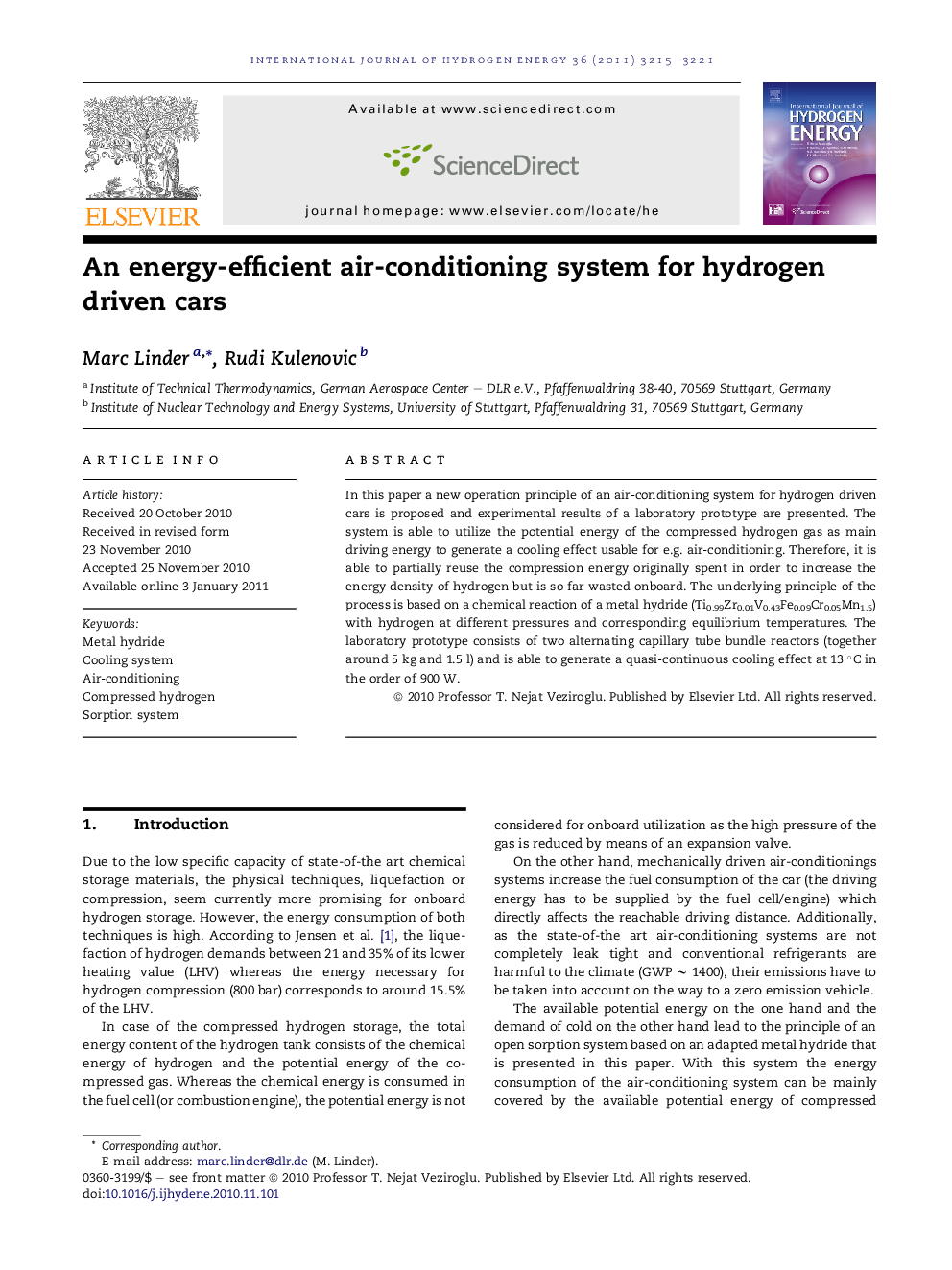| کد مقاله | کد نشریه | سال انتشار | مقاله انگلیسی | نسخه تمام متن |
|---|---|---|---|---|
| 1276434 | 1497589 | 2011 | 7 صفحه PDF | دانلود رایگان |

In this paper a new operation principle of an air-conditioning system for hydrogen driven cars is proposed and experimental results of a laboratory prototype are presented. The system is able to utilize the potential energy of the compressed hydrogen gas as main driving energy to generate a cooling effect usable for e.g. air-conditioning. Therefore, it is able to partially reuse the compression energy originally spent in order to increase the energy density of hydrogen but is so far wasted onboard. The underlying principle of the process is based on a chemical reaction of a metal hydride (Ti0.99Zr0.01V0.43Fe0.09Cr0.05Mn1.5) with hydrogen at different pressures and corresponding equilibrium temperatures. The laboratory prototype consists of two alternating capillary tube bundle reactors (together around 5 kg and 1.5 l) and is able to generate a quasi-continuous cooling effect at 13 °C in the order of 900 W.
Research highlights
► A new operation principle of a sorption cooling system for hydrogen driven cars based on metal hydrides is proposed and experimentally investigated.
► The system is able to utilize onboard the potential energy of the compressed hydrogen gas as main driving energy to generate a cooling effect usable for e.g. air-conditioning.
► The investigated laboratory prototype consists of two alternating capillary tube bundle reactors (together around 5 kg and 1.5 l) and is able to generate a quasi-continuous cooling effect at 13 °C in the order of 900 W.
► As hydrogen is the working fluid of the sorption system, the utilization of conventional refrigerants can be avoided.
Journal: International Journal of Hydrogen Energy - Volume 36, Issue 4, February 2011, Pages 3215–3221